Global Initiatives Grant Report – Southern African Field Archaeology
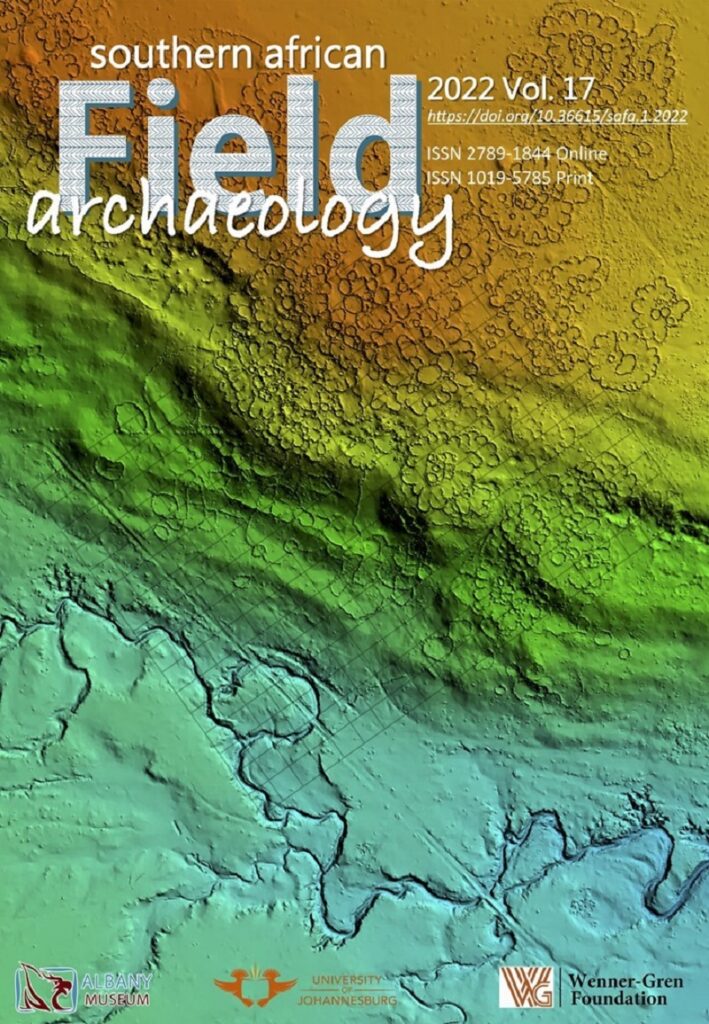
Work to revive Southern African Field Archaeology (a.k.a. FIELD) as the first open-access palaeo-science journal (free-of charge for African scholars) started in June 2021. The aim was twofold: 1) To communicate basic data, findings, syntheses and opinions about all aspects and periods of southern and/or sub-Saharan African archaeology, the palaeo-sciences, and heritage collections and management, to professional archaeologists, heritage practitioners, students, governing authorities and the public; and 2) to develop the publication profiles of young African authors by providing an open-access platform at no cost.
The first task was to procure rights to continue using the hard-copy journal name from the previous publisher, Albany Museum. Once done, we assembled the Editorial Team with Prof Marlize Lombard (Palaeo-Research Institute, University of Johannesburg) serving as the Chair, Dr Matt G Lotter (Palaeo-Research Institute, University of Johannesburg) serving as the Managing and Production Editor, and Dr Louisa Hutten (Department of Archaeology, University of Cape Town) serving as the Assistant Editor. We then appointed seven Specialist Editors from five different southern African institutions representing a range of backgrounds in the palaeo-sciences, and thirteen members to serve on the journal’s advisory board including four international and nine southern African specialists. In total, there are 23 Editorial Team members, who then collaborated to formulate the Journal’s scope, as well as its editorial policies and author guidelines to international standards, including statements on peer-review processes, copyright, privacy, ethics, etc.
We registered FIELD for its online International Standard Serial Number (ISSN), linking it to its original print ISSN. The next step was to procure and set up the journal’s website with its historical background, editorial contents and graphic artwork. FIELD is hosted by the UJ (University of Johannesburg) Online Journal System (OJS), a robust and easily accessible platform. The setup phase was completed by the Journal’s Managing and Production Editor over several weeks, working with the UJ Press Manager and OJS support staff, reconfiguring the generic OJS workflow to suit the needs of FIELD’s authors, reviewers, and editors by standardising communication templates and the peer-review process for the journal. Dr Matt Lotter also developed the page layout templates for the online publications and uploaded the FIELD archive with a complete PDF record of all previously print-published volumes from 1992-2007, creating a valuable digital resource.
In November 2021, training began with FIELD’s specialist editors (Fig. 1.1 and 1.2) and the call for submissions was opened (Fig. 2.1. and 2.2). Editor training was completed online using Zoom over two weeks. Concurrently, guiding documents were compiled and distributed to the editorial team, within which the manuscript-handling processes were outlined, step-by-step. FIELD’s call for submissions was circulated to the mailing lists of the Association of Southern African Professional Archaeologists (ASAPA) and the Society of Africanist Archaeologists (SAfA), and on various social media platforms. The call for submissions was recirculated several times during 2022.
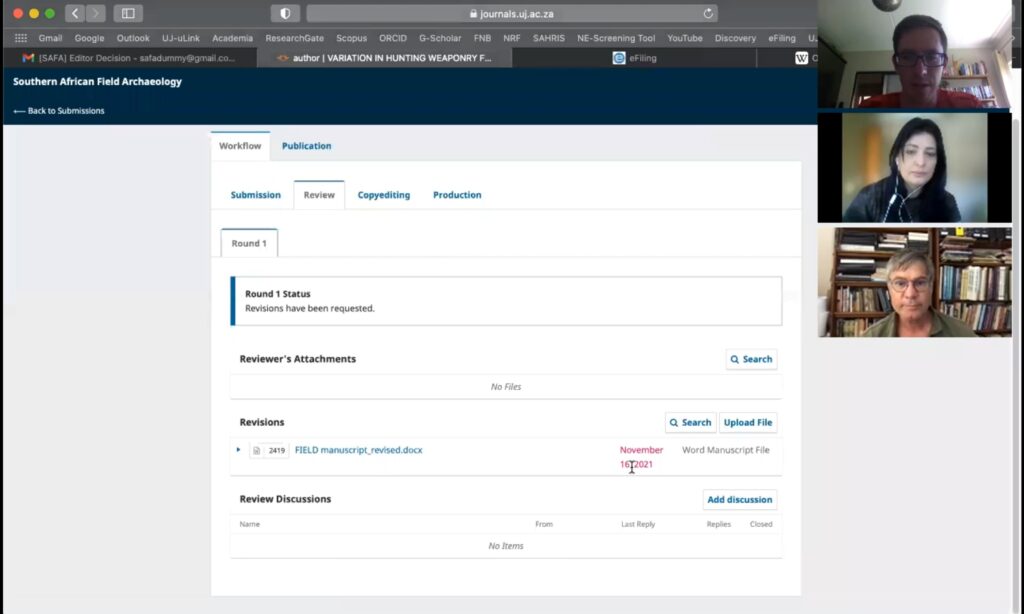
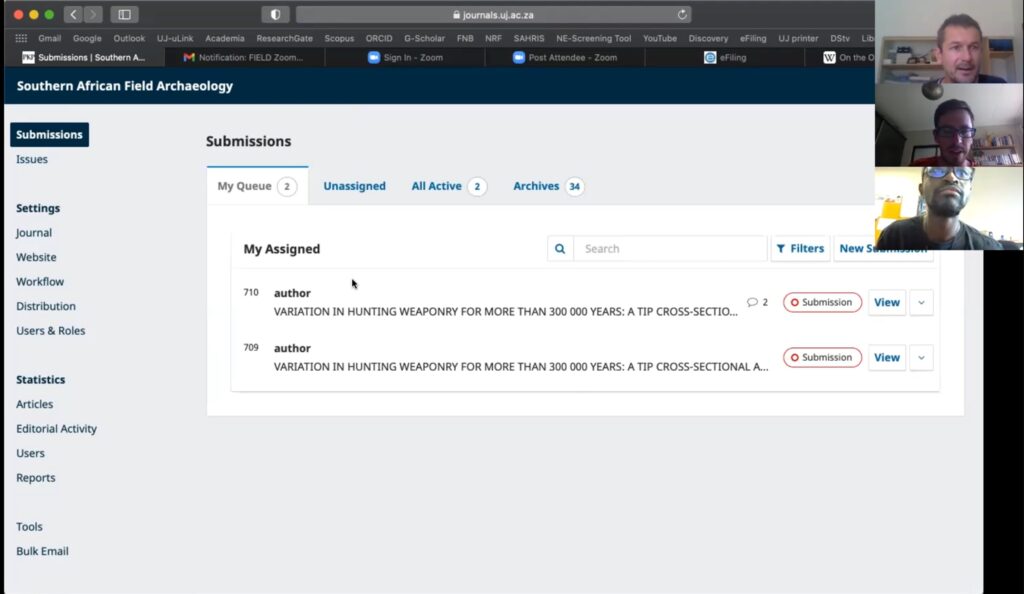
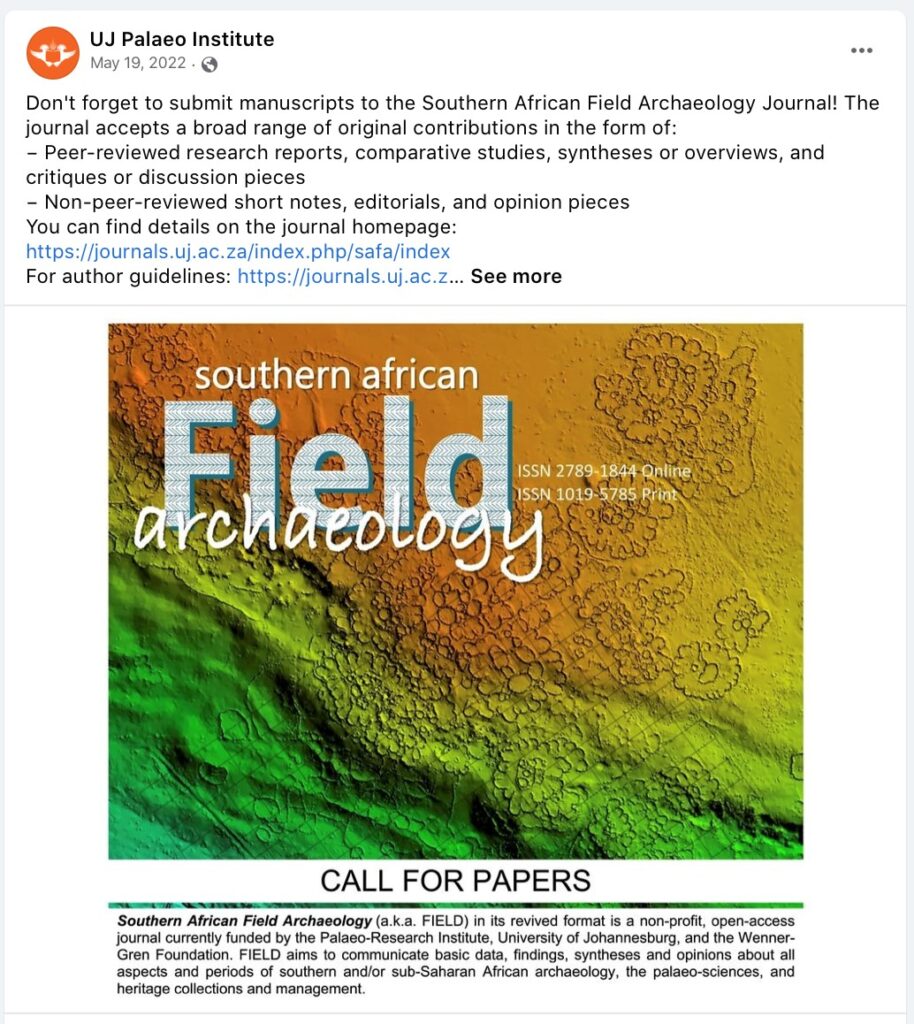
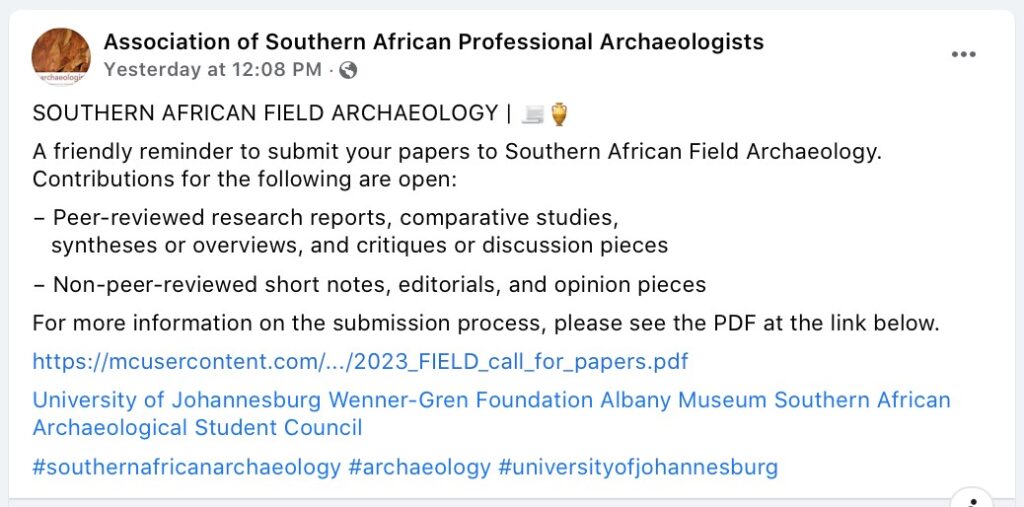
In January 2023, FIELD completed its first online volume, comprising six peer-reviewed, original research reports and one non-peer-reviewed short note (Table 1). Papers appear online first throughout the year as they are published, followed by announcements on social media platforms (Fig. 3.1 and 3.2). Collectively, volume 17 represents contributions from 22 different authors, representing nine different research institutions, labs and centres. Of these, six are local and three are international. In terms of content, the volume covers all major periods of the southern African palaeo-record, with publications on the Earlier, Middle and Later Stone Ages, in addition to more recent work on the Iron Age and Historic period. Based on the data in Table 1, the abstracts for these seven publications have been viewed over 1500 times and the papers themselves have been downloaded over 250 times, since the volume was published earlier this year.
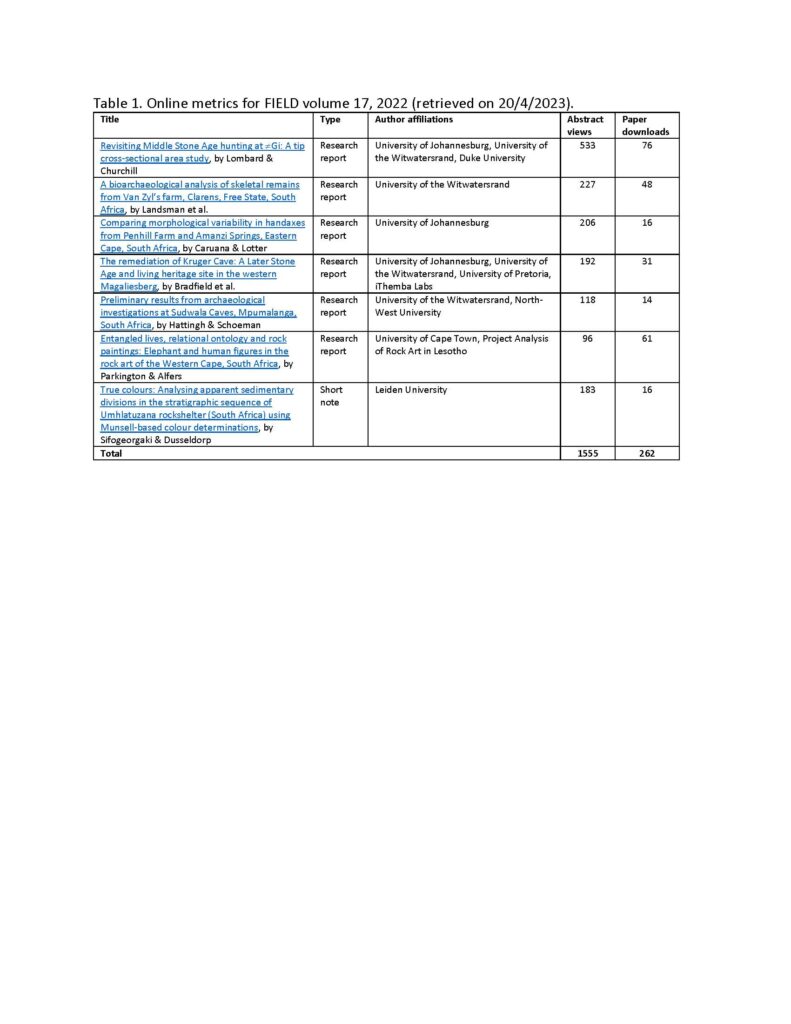
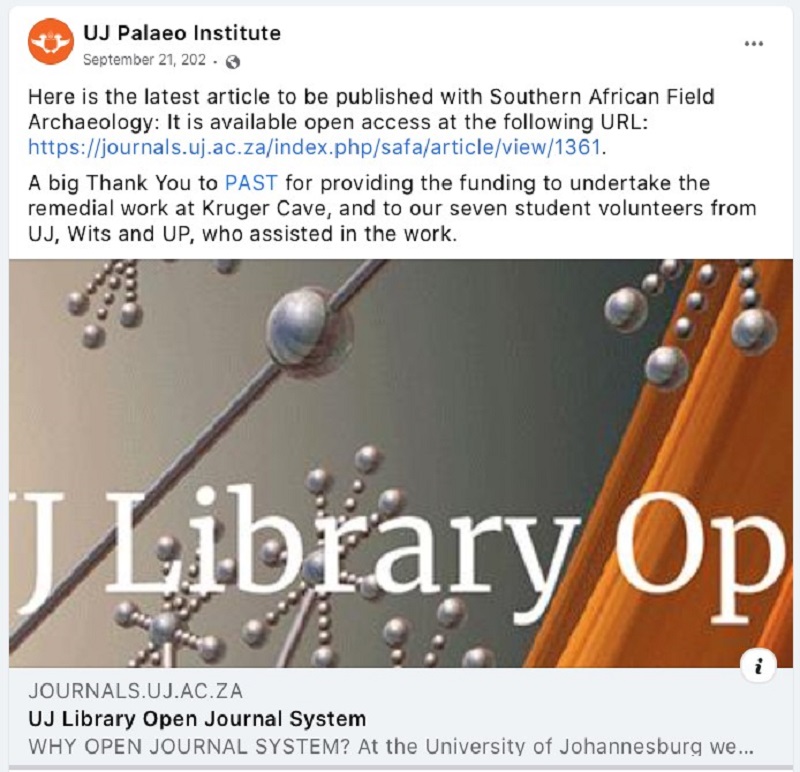
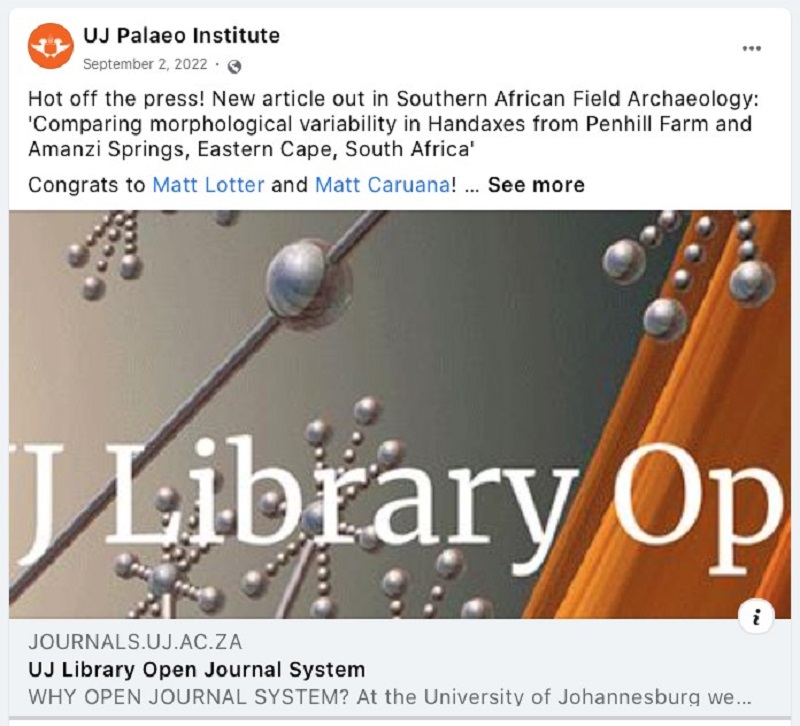
This year (2023), multiple submissions are under review at FIELD with at least two peer-reviewed research reports nearing the end of the review process. We anticipate a range of papers for the upcoming volume 18 (2023). The Managing and Production Editor, Dr Lotter, is the only salaried person (see financial report), responsible for managing the website, workflow, language editing and page layout of each manuscript. He will be attending monthly editor training modules organized by the Academy of Science of South Africa (ASSAf), having already attended two earlier this year. These modules provide critical information on how to be a successful editor and how to manage an academic journal.